London Marathon 2022: How war brought the frontline to the start line
- Published

Kostiantyn Bidnenko and Viktoriya Kiose moved to London from Kyiv in May
TCS London Marathon |
|---|
Date: Sunday, 2 October Time: 08:50 BST (elite wheelchair men's and women's races), 09:00 BST (elite women's race), 09:40 BST (elite men's race and mass start) |
Coverage: Live on BBC television, radio and online |
Kostiantyn Bidnenko and Viktoriya Kiose never meant to do the London Marathon.
The race was something they were barely aware of when they went to bed on 23 February.
That, like so much more, changed at 5am the next day.
They awoke early. Across the country, bombs were exploding, with Ukraine's capital, their hometown, Kyiv, a particular target for Russia.
Bidnenko, 35, reported for military duty. Asked if he had any medical conditions, he explained his alkaptonuria, a rare, progressive genetic disease that causes pain in the joints. It meant he couldn't serve his country on the frontline.
Via Lviv, Warsaw and Naples, Bidnenko and his fiancée Kiose arrived in London in May.
But while reading the daily dispatches of death and pain back home, they felt the call of duty.
They will run on Sunday to raise money for United 24, the foundation supporting Ukraine, and to buy drones for volunteers working in the country.
"We have very strong motivation," Bidnenko told BBC Sport.

Bidnenko and Kiose were due to marry this year, before war broke out in their homeland
"When you run with the Ukraine flag, when you hear how people support you and scream the name of your country, you feel a responsibility not only for yourself, but for your country and people too. It is a very amazing feeling."
Their training has been powered by the thought of friends, family and compatriots back home. And occasionally hindered by it too.
A fortnight ago, they travelled to Bulgaria, where Bidnenko's sister lives, to meet their family for the first time since the outbreak of war. Bidnenko's parents crossed the border from Ukraine for the reunion. Kiose's mother did too.
Her father, who she hasn't seen for seven months, couldn't. At 57, and without any medical exemption, he is of fighting age and required to stay in Ukraine to potentially take up arms.
"In Ukraine, your parents always want you to eat more," said Bidnenko, remembering their emotional meeting. "They say 'why do you want to run? It's better to eat this chicken, this sausage'.
"It's very hard to say no to your parents! I came back with a few more kilograms!"
The pair haven't been drinking alcohol during the build-up to the race.
But, earlier this month, after hearing of the release of 215 fighters who had heroically defended Mariupol's Azovstal steelworks, external, they toasted the good news.
"Those guys are like superheroes to us," said Kiose.
Sunday will be an emotional day. But then every day, removed from their suffering homeland, has been emotional over the past seven months.
"People see me out running in the sun and everything looks OK," said Kiose.
"But every time I smile, I feel bad. I think of my parents in Ukraine, the Russian army bombing our cities.
"Every day you interact with people, you have to speak and smile, but you still feel bad. This combination of emotions is very difficult."
Also on the start line...
Ian Johnson
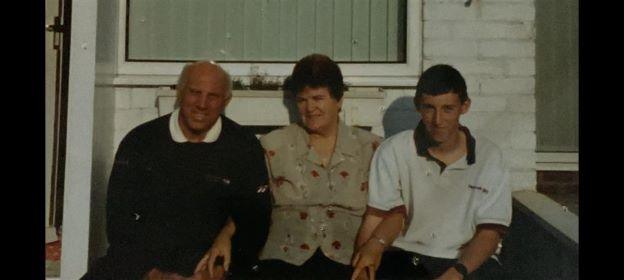
Johnson, right, with his grandparents Joyce and Ronnie Moran
Ronnie Moran was a founding member of Liverpool football club's famous 'Boot Room' collective.
A small group of men who met in a small room under the Main Stand, it spawned one football's great coaching dynasties.
Bill Shankly, Bob Paisley, Joe Fagan and Roy Evans all managed Liverpool. Moran served as an assistant under them and took the reins twice as a caretaker manager.
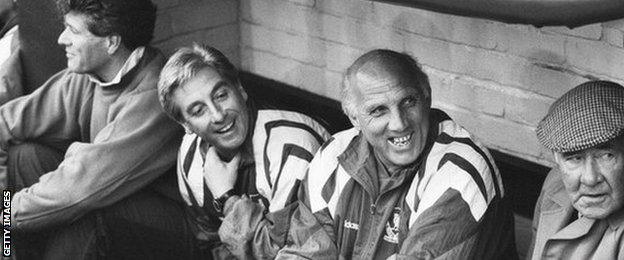
Moran, second from right, was part of Liverpool's success for 49 years as both a player and coach
But in Moran's final years, the memories built up over almost five decades of playing and coaching at the club were eroded by Alzheimer's Disease. Moran died in 2017, while his wife Joyce, who also suffered with Alzheimer's, passed away earlier this year.
Their grandson Ian Johnson is running for Alzheimer's Society.
"To see your loved ones fade away and not remember the lives they've had is very sad," he said.
"Hopefully the money I raise for the charity will help towards their research and hopefully, one day, a cure,"
Dylan O'Shea
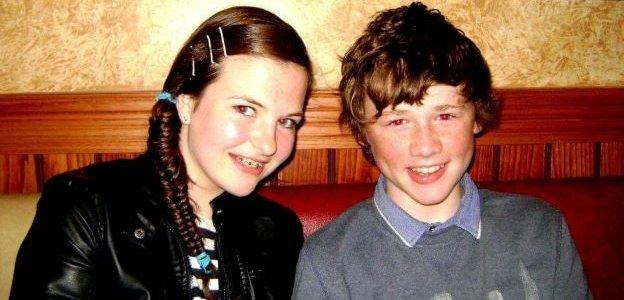
Ashling Murphy and Dylan O'Shea
In January, Ashling Murphy went for a run and didn't come home.
The 23-year-old primary school teacher was attacked and killed on the banks of the Grand Canal, outside Tullamore in the Republic of Ireland.
Tens of thousands of people around Ireland and beyond attended vigils in her memory.
On Sunday, her cousin Dylan O'Shea will run to raise money for Laureus Sport For Good - a charity that uses the power of sport to empower the next generation of females to participate in activity.
"Ashling did everything right. She went out at 16:00 when it was light, on a crowded canal where it is seen to be safe," he said.
"I am running the London Marathon to try to keep her memory burning. I use the anger, frustration and pain to fuel my long runs."
Anoosheh and Aryan Ashoori
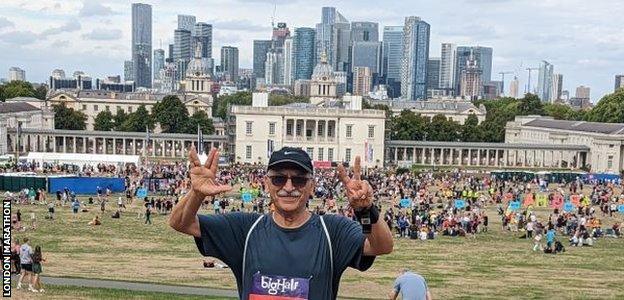
Ashoori taking part in the Big Half in September in training for the London Marathon
"I run for an hour at least every day. I have a plan, or a dream, that I will participate in the London Marathon."
When Anoosheh Ashoori wrote those words, both London and the prospect of taking part in the marathon seemed a long way off.
The 68-year-old was being held in Evin prison, on the outskirts of Tehran.
An Iranian-British dual national, Ashoori, like Nazanin Zaghari-Ratcliffe, had been jailed on spying charges by the Iranian regime.
Ashoori tried to kill himself after being ground down by the interrogation methods used by his guards.
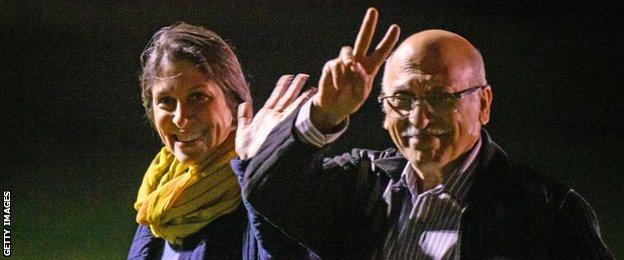
Anoosheh Ashoori and Nazanin Zaghari-Ratcliffe were flown back to RAF Brize Norton from Iran in March
But another prisoner gave him a copy of What I Talk About When I Talk About Running, in which Japanese writer Haruki Murakami shares the life lessons he has learned on long runs.
Ashoori was inspired. He started running round the small patio that served as the prisoners' exercise yard.
Released along with Zaghari-Ratcliffe in March, Ashoori and his son Aryan will run the London Marathon in aid of Amnesty International and Hostage International, who helped the family through Ashoori's five years of imprisonment.

The champion ignored by the world: Meet Ora Washington, who fought to make her name in racially segregated America
How did Emiliano Sala end up on that fatal flight?: Transfer investigates the tragic story behind the headlines
